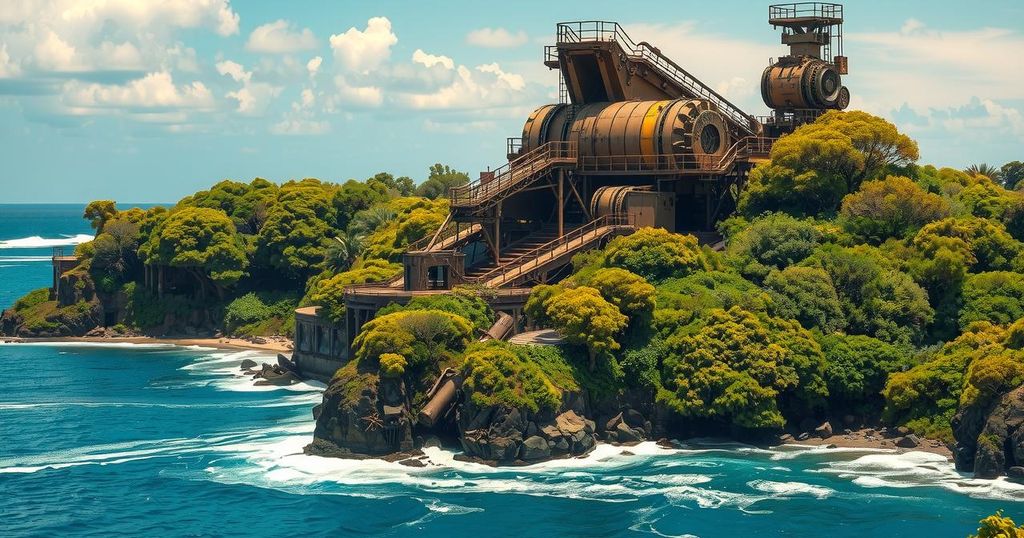Destruction of Senegal’s Fertile Coast: Mining Operations Stir Controversy
Eramet’s mining operations in Senegal are causing severe ecological and social disruption, including displacement of farmers and environmental degradation. Local communities demand accountability and compensation, while President Faye calls for greater oversight of extractive practices. The conflict underscores a need for a balance between economic development and environmental preservation.
Senegal’s coast is facing significant ecological devastation due to the operations of the world’s largest mining dredger, utilized for extracting zircon, a mineral used in various industries. This extensive mining activity has led to a noticeable scar over 23 kilometers long, visible from outer space, disrupting the fertile land crucial for local vegetable production. The dredger operates with great intensity, demolishing not only the environment but also the livelihoods of thousands of farmers who have been displaced over the last decade to accommodate these mining activities overseen by the French company Eramet.
Local farmers and their families have voiced concerns over the environmental toll and the inadequacy of compensation provided by Eramet, who claims its operations are responsible and benefits are shared. However, they argue that the compensation is insufficient compared to the losses they face, particularly when it comes to the destruction of their agricultural land. Local officials have also criticized the situation, stating that the mining process has resulted in a deterioration of the local ecosystem.
Senegal’s new President, Bassirou Diomaye Faye, has acknowledged the rising discontent among the populace, asserting that local communities should benefit from extractive practices. He has called for greater oversight and transparency concerning the social and environmental implications of mining activities. His administration pledges to reclaim Senegal’s sovereignty from its colonial past, particularly regarding resource extraction.
Eramet maintains that it adheres to agreements with the Senegalese government and compensates affected families. Despite this, local sentiments reflect a breach of trust due to broken promises and inadequate resettlement measures for displaced individuals. Critics argue that the mine’s operations significantly damage the soil, compromising their traditional means of agricultural livelihood and food security.
Protests from the affected communities continue, entreating the government to pause mining activities to assess and address the ongoing damage. While Eramet asserts that it has created new housing and infrastructure for displaced families, many residents express dissatisfaction with the compensation and resettlement process.
Moreover, environmental concerns persist regarding the contamination of local water supply and the overall viability of land previously used for cultivation. Despite Eramet’s claims of responsibility, locals call for urgent action to establish the true environmental impact and ensure adherence to promises made regarding land restitution.
The situation remains tense as local leaders advocate for a moratorium on mining, demanding thorough studies to investigate the broader implications of the operation. Eramet contends that halting operations would jeopardize employment for thousands of local workers and undermine economic growth for Senegal.
The mining operations conducted by Eramet on Senegal’s coast represent a complex interplay of economic development versus environmental and social responsibility. While the company claims to provide substantial compensation and infrastructure development, the discontent and displacement among local communities highlight significant shortcomings in their operations. As local leaders demand transparency and a cessation of mining activities to reassess the ecological damage, the future of this crucial land remains uncertain, prompting a vital dialogue over resource management and community welfare in Senegal.
Original Source: www.kpvi.com




Post Comment